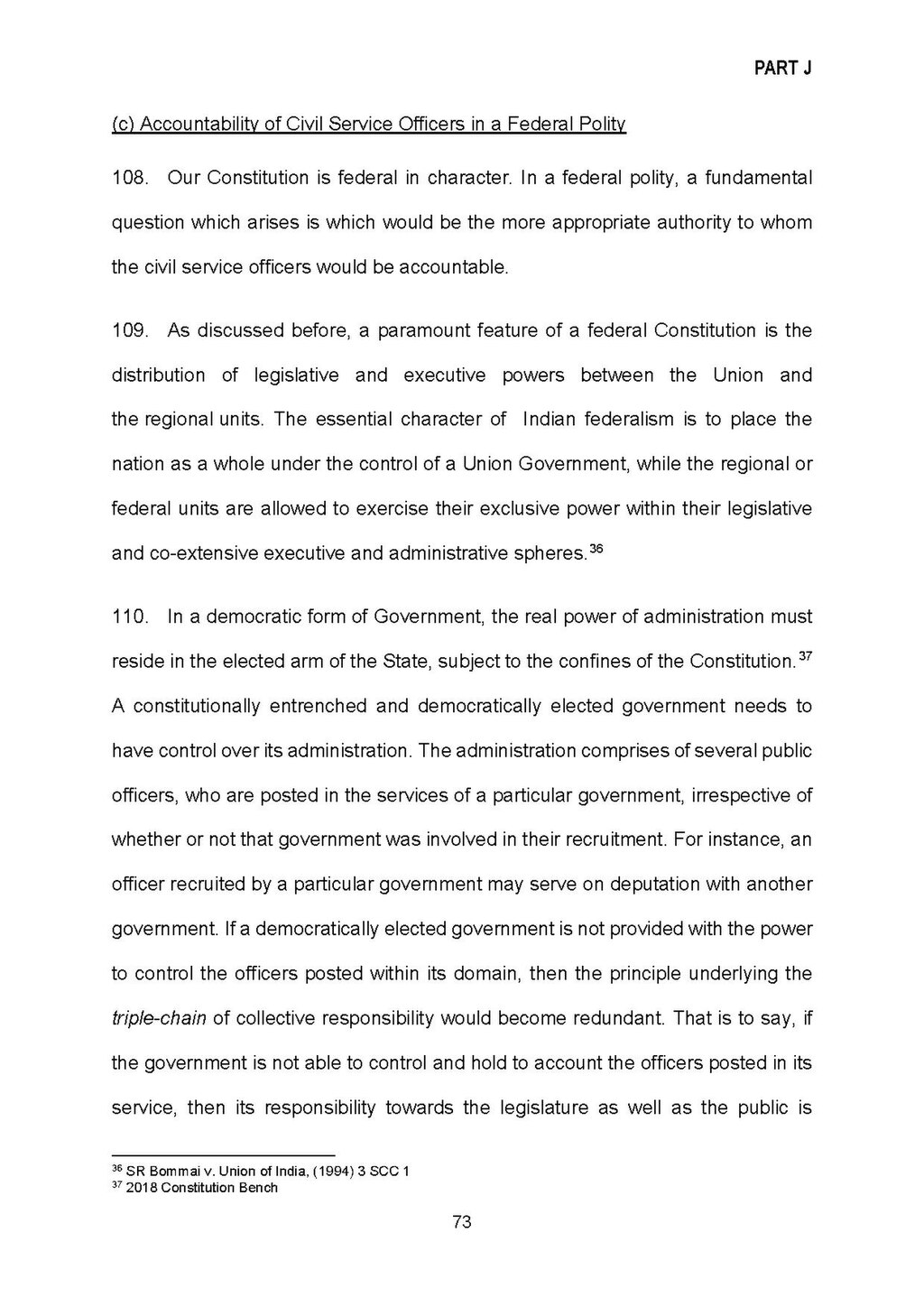(c) Accountability of Civil Service Officers in a Federal Polity
108. Our Constitution is federal in character. In a federal polity, a fundamental question which arises is which would be the more appropriate authority to whom the civil service officers would be accountable.
109. As discussed before, a paramount feature of a federal Constitution is the distribution of legislative and executive powers between the Union and the regional units. The essential character of Indian federalism is to place the nation as a whole under the control of a Union Government, while the regional or federal units are allowed to exercise their exclusive power within their legislative and co-extensive executive and administrative spheres.[1]
110. In a democratic form of Government, the real power of administration must reside in the elected arm of the State, subject to the confines of the Constitution.[2] A constitutionally entrenched and democratically elected government needs to have control over its administration. The administration comprises of several public officers, who are posted in the services of a particular government, irrespective of whether or not that government was involved in their recruitment. For instance, an officer recruited by a particular government may serve on deputation with another government. If a democratically elected government is not provided with the power to control the officers posted within its domain, then the principle underlying the triple-chain of collective responsibility would become redundant. That is to say, if the government is not able to control and hold to account the officers posted in its
service, then its responsibility towards the legislature as well as the public is
73
